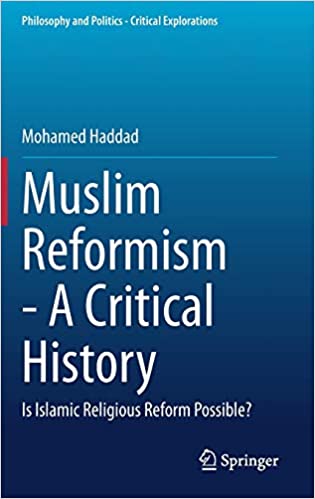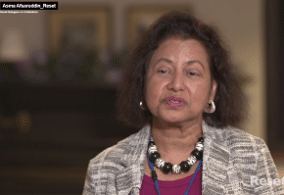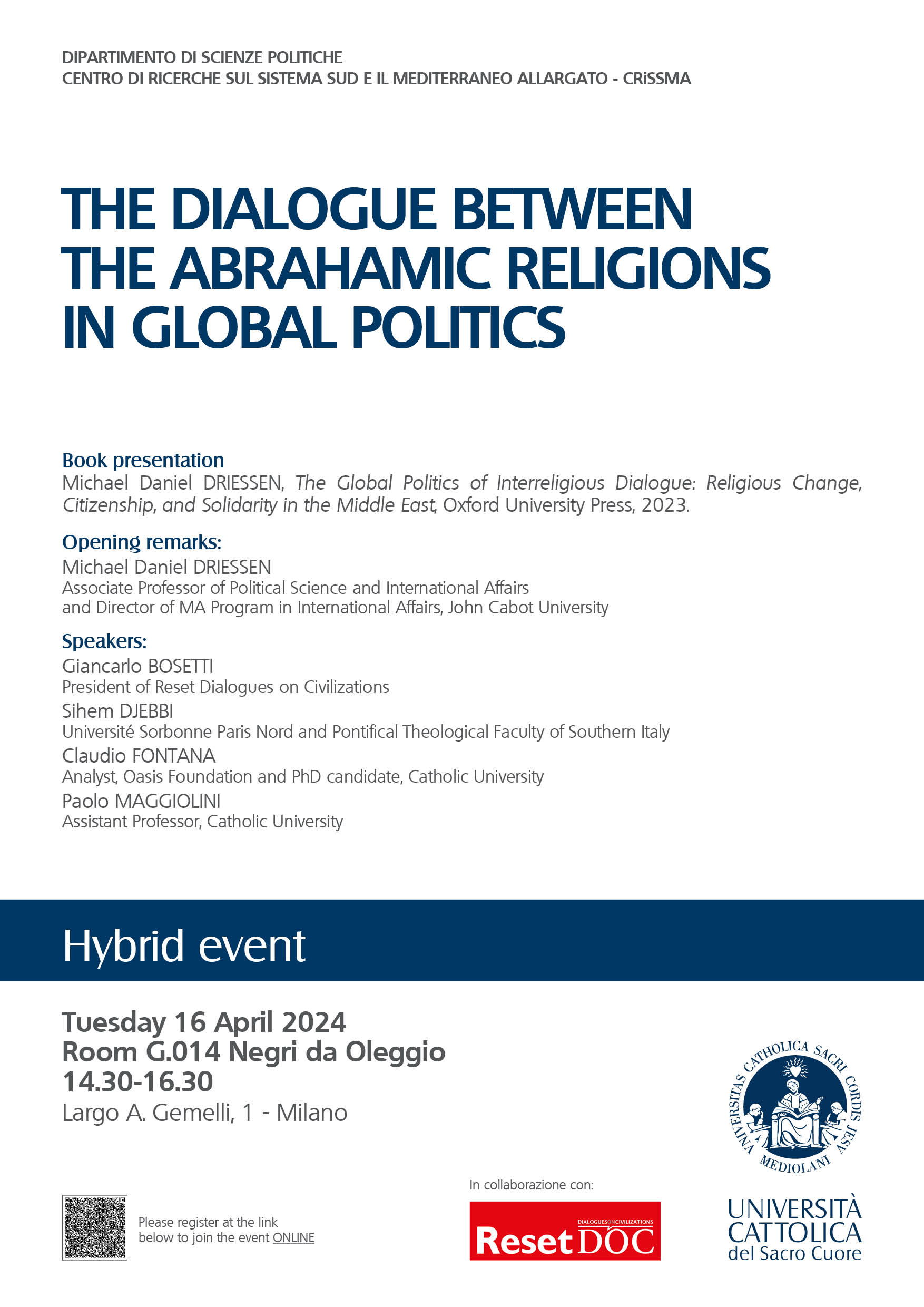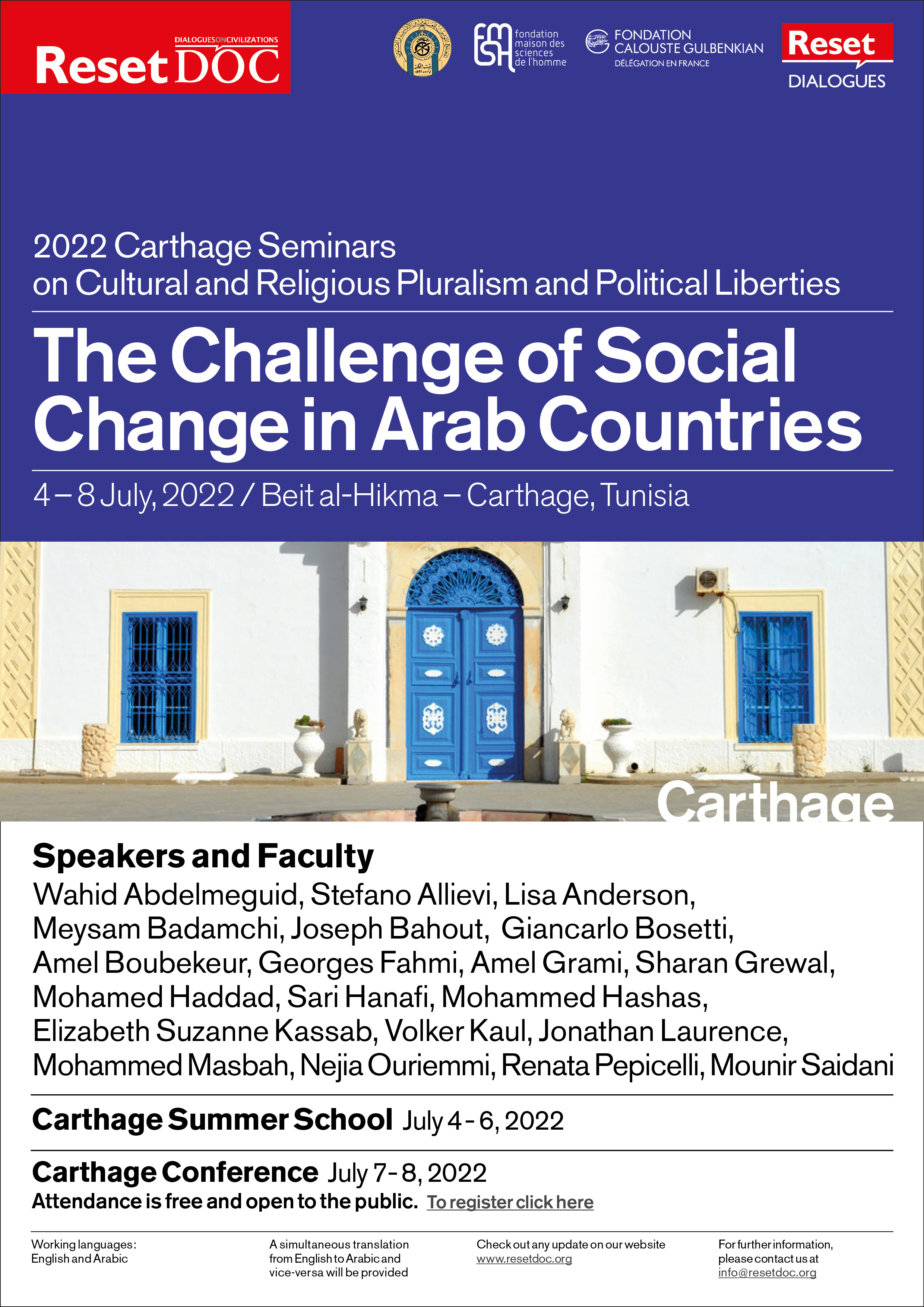Regions
PublicationsMiddle East
This book examines the evolution of Islam in our modern world. The renowned Tunisian scholar Mohamed Haddad traces the history of the reformist movement and explains recent events related to the Islamic religion in Muslim countries and among Muslim minorities across the world.
Our Initiatives Middle East
The international association Reset Dialogues on Civilizations has launched the Reset Seminars of Pluralism in the Middle East and North Africa, a yearly international program on cultural and religious pluralism and political liberties. The purpose is to promote a local intellectual response to the rise of rigorist strands of Islamic thought by training 40 emerging opinion-leaders on the relationship between religion, history and power and to contribute to the reawakening of pluralistic traditions in Muslim contexts.
Videos Middle East
Asma Afsaruddin 17 January 2025
Asma Afsaruddin, professor of Islamic studies at Indiana University, talks about the challenges of achieving peaceful coexistence in the Israeli-Palestinian conflict. She highlights the need for equal rights and justice for all, pointing to the absence of a Palestinian state as a major obstacle.
ConveningMiddle East
Michael Daniel Driessen, joined by Giancarlo Bosetti, Sihem Djebbi, Claudio Fontana and Paolo Maggiolini, will discuss his most recent publication, “The Global Politics of Interreligious Dialogue: Religious Change, Citizenship, and Solidarity in the Middle East” published by Oxford University Press, which examines the growth of state-sponsored interreligious dialogue initiatives in the Middle East and their use as a policy instrument for engaging with religious communities and ideas.
ResetDOC in collaboration with Beit Al Hikma, the Fondation Maison des sciences de l’homme, and the Calouste Gulbenkian Foundation is organizing the 2022 Carthage Seminars and Summer School. This year’s theme will address the issues relating to the difficulties faced by Middle Eastern and North African countries in establishing social change. More than a decade has passed since the Jasmine Revolution and many MENA countries are still struggling to successfully implement economic and social reform. The added struggles imposed by the Covid-19 pandemic and the recent invasion of Ukraine by Vladimir Putin have exacerbated the external conditions needed to guarantee stability and economic growth in the region. The Seminars and Summer School will attempt to look at the current challenges and analyze what future obstacles, such as Climate Change, may get in the way of development and try and determine what the path forward may be.
The 2021 Carthage Seminars and Summer School will explore the theme of cultural pluralism in the Media, both traditional and digital, with particular attention paid to information technologies and how news spreads. What are the principal sources of information in the Arab and Muslim World? Who finances them, who owns them, who controls them culturally? Who is in the position to guarantee or impede freedom of speech and the plurality of public discourse? The courses and workshops will explore the status of pluralism in the Arab and Muslim world and the communities the world over.













